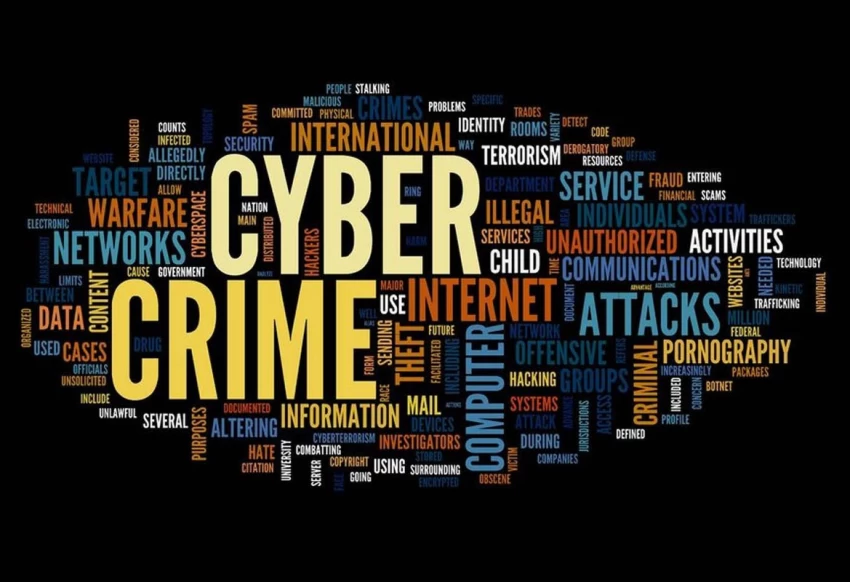Cyber Crime
CYBER LAW

WHAT IS CYBER LAW?
Cyber law, also known as internet law or digital law, refers to the legal framework that governs activities and transactions conducted over the internet and other electronic communication networks. It encompasses a wide range of legal issues related to cyberspace, including online privacy, data protection, cybersecurity, intellectual property rights, electronic commerce, digital transactions, cybercrime, and internet governance.
The very first cyber law to exist was the Computer Fraud and Abuse Act, 1986. Currently, there are several cyber laws around the world and the penalties, punishments, and regulations vary to an extent.
Following are the common Cyber Crimes covered by Cyber Law around the globe:
Hacking: Unauthorized access to computer systems, networks or data with the intent to steal information, disrupt operations or cause damage. Hackers may exploit software vulnerabilities, weak passwords or social engineering techniques to gain access to sensitive information or control over computer systems.
DDoS and botnet: This is one of the top arenas covered by cyber law in general. Large websites are usually a target for hackers looking to steal data or extort money from site owners. Hackers do so by generating traffic beyond the site’s capacity, which, eventually, crashes the site. When the site is not functioning, the hackers steal the data or contact the site owner and demand money to restore the site. This type of attack is known as a DDoS attack and is done via the botnet system.
Phishing: Phishing involves the use of fraudulent emails, websites, or messages to deceive individuals into providing sensitive information such as passwords, credit card numbers, or personal data. Phishing attacks often mimic legitimate organizations or institutions and aim to steal confidential information for identity theft, financial fraud, or other malicious purposes.
Malware: Malware, short for malicious software, refers to software programs designed to infect computers, steal data, or cause damage to systems. Common types of malware include viruses, worms, Trojans, ransomware, spyware, and adware. Malware can be distributed through email attachments, malicious websites, infected files, or compromised networks.
Ransomware: Ransomware is a type of malware that encrypts files or locks users out of their systems until a ransom is paid. Ransomware attacks typically target individuals, businesses or organizations. They encrypt critical data and demanding payment in exchange for de-cryption keys. Ransomware attacks can cause significant financial losses, operational disruptions and reputational damage.
Cyber Extortion: Cyber extortion involves threats or blackmail tactics to extort money or other valuable assets from individuals or organizations. Cyber extortionists may threaten to release sensitive information, disrupt services, or launch damaging cyberattacks unless their demands are met. Examples include distributed denial-of-service (DDoS) attacks, data breaches or threats to expose confidential data.
Identity Theft: Identity theft occurs when criminals steal personal or financial information to impersonate individuals or commit fraud. This may involve using stolen credentials to access bank accounts, make unauthorized purchases, apply for loans or credit cards, or file fraudulent tax returns. Identity theft can have severe consequences for victims, including financial losses and damage to their creditworthiness.
Cyberbullying: Cyberbullying involves the use of digital communication platforms to harass, intimidate, or threaten individuals, often with the intent to cause emotional distress or harm. Cyberbullies may use social media, messaging apps, or online forums to spread rumours, share offensive content, or engage in targeted harassment campaigns.
Online Fraud: Online fraud encompasses various fraudulent schemes conducted over the internet to deceive individuals or organizations for financial gain. Instances include investment scams, fake lottery schemes, romance scams, fake online auctions, and fraudulent e-commerce transactions. Online fraudsters use deceptive tactics to trick victims into sending money or disclosing sensitive information.
Child Exploitation: Child exploitation involves the sexual abuse, grooming or exploitation of minors through online platforms, social networks or digital communication channels. This includes activities such as online grooming, child pornography, sextortion, and luring minors into illicit activities. Child exploitation crimes pose serious threats to children’s safety and well-being, requiring proactive measures to protect them from online predators.
Cyber Espionage: Cyber espionage involves the theft of sensitive information, trade secrets, or intellectual property from governments, corporations, or individuals for espionage or competitive advantage. State-sponsored actors, criminal syndicates, or corporate spies may conduct cyber espionage operations to gather intelligence, sabotage rivals, or undermine national security interests.
PUPs: It is usually popular advice by cyber law experts to avoid installing unknown software for the simple reason that malware can be installed into your computer and files can be stolen. Furthermore, spyware can be installed on your computer for malicious purposes as well. This mode of gaining access or stealing data via adware, spyware, etc., is known as potentially unwanted programs (PUPs.) This is why it is common to advise cyber law and computer experts to make use of authorized service centres only.
Copyright: The internet has made copyright violations easier. The early days of online communication made copyright violations as easy as clicking a button on a file-sharing website. Both individuals and companies need attorneys to bring actions to enforce copyright protections. Copyright infringement is an area of cyber law that defends the rights of individuals and companies to profit from their creative works.
Defamation: Many people use the internet to speak their minds. When people use the internet to say things that are untrue, it can cross the line into defamation. Defamation laws are civil laws that protect individuals from untrue public statements that can hurt a business or someone’s personal reputation. Defamation law is cyber law when people use the internet to make statements that violate civil laws.
Freedom of Speech: An important area of cyber law is freedom of speech. Even though cyber laws prohibit certain behaviours online, freedom of speech laws also allow people to speak their minds.
Is honey trap legal in India?
Legal Proceedings: In some cases, individuals involved in espionage, including honey trapping, may be prosecuted under domestic laws in the country where they are apprehended.
